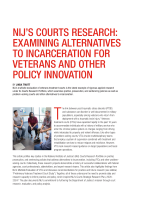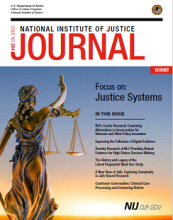Process Evaluation of the Virginia Department of Juvenile Justice’s Regional Service Coordination Model: NIJ Final Report
Date Published
September 2023
Agencies
NIJ-Sponsored
Publication Type
Research (Applied/Empirical)





